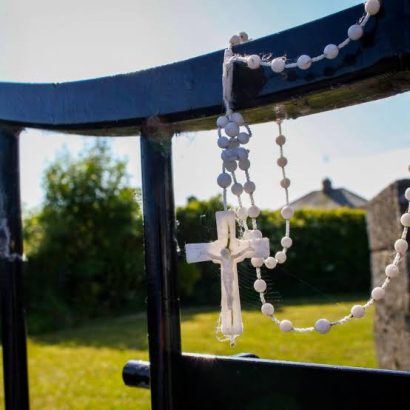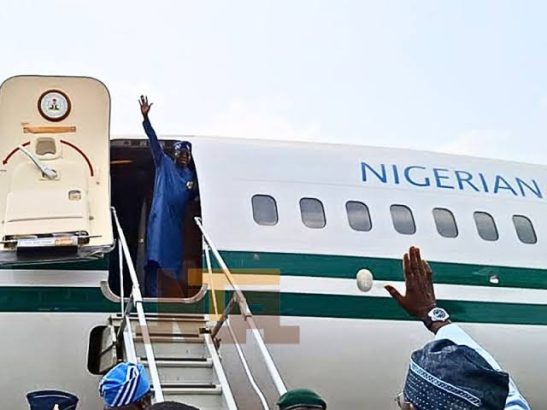
The Federal Government last week issued the N4 billion bailout funds to assist 18 scheduled and non-scheduled carriers recover from the COVID-19 crisis. The lockdown in 2020, followed by travel restrictions and the prevalent economic crisis has drastically affected the aviation sector. It is no news that the industry needs urgent assistance to help recover from the downturn resulting from the global pandemic.
The air transport industry is said to support a total of 65.5 million jobs globally and provides 10.2 million direct jobs. Before the crisis, aviation in Nigeria contributed $1.7 billion to the country’s GDP and supported 241,000 jobs. Estimates from IATA reveals that the Covid-19 crisis has affected 124,000 Nigerians in the aviation sector with risk of cutting over $900 million of the country’s GDP.

Although there is no specific collation on the actual amount lost, estimates have been given within the range of about N360bn and N500bn. No fewer than 120 planes were parked during the three months’ lockdown with. A huge sum was still being spent on maintenance during and just before operations started.
The Chief Operating Officer of one of the airlines disclosed that without the heavy cost of maintenance, the airlines could have overlooked the Federal Government’s bailout plan. He also stated that the lockdown was an unforeseen development.
‘In our case, C-check maintenance costs as much as $2 million per airplane because we have to fly them overseas. Most of the planes grounded during the lockdown are already due for C-checks’, he stated.
The special intervention by the Federal Government has been lauded as it embraces all airlines with a valid Air Operating Certificate (AOC). The distribution is also according to the size of the carrier.
However, there have been complaints about the N4bn bailout fund. Operating officers have expressed their disappointments, stating that such a meager sum cannot achieve recovery in the sector. The fund which is to be shared among 18 scheduled and non-scheduled carriers has been described as ‘a drop in the ocean’.
‘Think about it, the so-called N4 billion bailout can only repair four airplanes at the cost of $2 million each. Isn’t that a drop in the ocean?’ a Chief Operating Officer lamented.
Minister Hadi Sirika while defending the Ministry of Aviation’s 2021 budget at the Senate’s panel in November 2020 disclosed that the N5 bn was in the offing for aviation. The sum was in disparity in the estimate of both the operators and the host lawmakers. He stated that airlines should basically be given N50 billion for economic and safety reasons.

Another airline operator stated that airlines may soon collapse if the needed support was not given by the government. ‘Certainly N4bn is too little to do anything,’ an operator stated.
This has brought about conflict over the distribution as airlines are fighting to get a fair share of the meager sum. Several airline operators have condemned the sharing formula adopted for the distribution. They stated that the ratio 70:30 adopted between the schedule and non-scheduled carriers lacked balance and was more in favor of few airlines. An operator accused the executives of the Airline Operators of Nigeria (AON) of ‘making themselves’ the major recipients through their choice of parameters. He stated that they all are experiencing the challenges together and so it’s wrong that they cannot receive according to him an ‘equitable share of the palliative’.
The alleged lack of balance has also been counteracted as there have been rising demands for prioritization of bigger airlines whose operations experienced a major hit by the pandemic.
There were also reports of heated arguments among the AON Board of Trustees (BOT) and the executives. The argument was said to be over the sharing of N3bn of the total sum among six scheduled operators with the remaining N1bn given to 10 charter operators.
When comparing Nigeria’s bailout fund with other African countries, the huge difference cannot be overlooked. Senegal for instance, whose number of airline operators is fewer than Nigeria released a sum of $74million bailout fund. Rwanda also gave $150million to the airline industry. South African government announced that they were prepared to give South African Airways a bailout of R10.5 billion ($640 million) to assist the struggling airline. The airline had earlier in February 2020 received R16.4 billion ($1 bn) to resettle debts and cover interest payment.

‘If comparative analysis is anything to go by, it is clear that the N4 billion naira announced by the Federal Government as bailout funds for airline operators will not be sufficient to sustain three of the needs of the 15 scheduled flight operators, save the non-scheduled operators,’ Smart Adeyemi, Chairman, Senate Committee on Aviation disclosed. This shows that there is still no certainty of recovery in the sector.
Alexandre de Juniac, IATA’s Director General and Chief Executive Officer (CEO) stated that airlines need ‘continous government support to enable the aviation industry restart and rebuild connectivity’.
Peace Omenka


